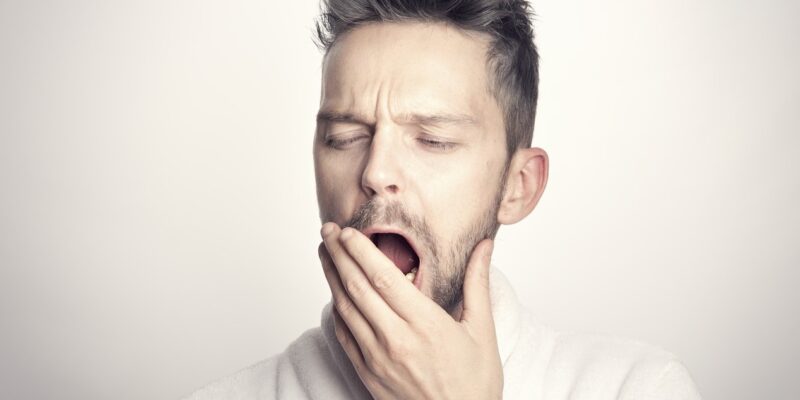Experiencing insomnia may be exasperating and frustrating. Many people have restless nights, which result in drowsy days and a pattern that seems hard to escape. Data shows that at least once a month, about 40% of people say they nod off throughout the day without intending to.
Drugs are sometimes a quick fix, but they can have negative side effects and may not deal with the underlying reason. Fortunately, there is a gentle, all-natural method for resolving insomnia using holistic and mindful techniques. These techniques not only support healthy sleep patterns but also general well-being.
Understanding the Root Causes of Insomnia
Before looking into remedies, it’s critical to identify any potential sleep disorders. Your ability to sleep peacefully might be hampered by stress, worry, bad sleeping habits, and even specific meals.
Stress-caused insomnia is pretty common among older adults. This was also witnessed during the highly stressful times of the COVID-19 pandemic. An NCBI study found that older adults experiencing frequent stress had 91% higher odds of having trouble initiating sleep. Moreover, they had 40% and 83% higher odds of nocturnal awakening and nonrestorative sleep, respectively.
Medical issues such as persistent pain, sleep apnea, or hormone abnormalities may be the cause in certain circumstances. Finding the root reason is essential to developing a successful treatment plan. The goal of holistic approaches is to treat these underlying issues as opposed to only the symptoms.
Creating a Restful Sleep Environment
The bedroom ought to be a stress-free haven away from outside influences. Make sure your bed is sturdy and cozy before anything else.
A pillow that supports your neck properly and a mattress that fits your body type and preferred sleeping position are both important. Take into account the room’s temperature as well. A calm, dark, and chilly setting encourages deeper sleep. A white noise machine or earplugs can assist in suppressing noise, while blackout curtains or a sleep mask can block out light.
It might be challenging to relax when there is confusion and discomfort in the bedroom due to clutter. Calm is enhanced by having a neat and orderly sleeping space. It’s significant to keep technology in the bedroom to a minimum.
How Does a Pre-Sleep Routine Help With Insomnia?
You may train your body to recognize when it’s time to unwind by creating a pre-sleep routine. This might be reading a book, taking a warm bath, or performing simple yoga positions. Steer clear of big meals and stimulants like caffeine or nicotine right before bed.
Natural Remedies for Insomnia
Traditional medicine has included herbal supplements, such as magnesium, passionflower, and valerian root, to encourage relaxation and enhance the quality of sleep. Valerian root helps speed up the process of falling asleep, while passionflower is widely known for its calming effects.
Magnesium is necessary for both the relaxing of muscles and the overall health of the neurological system. You may absorb it via your skin by taking an Epsom salt bath before bed, or you can take it as a supplement.
Another alternative natural remedy for insomnia is cannabis. The good news is that they are now accessible in various forms and are legal in the majority of US states. They can be ingested as foods, tinctures, oils, vape pens, etc. However, an ideal way to do so is in the form of a THC seltzer.
Tetrahydrocannabinol, or THC, is mixed with carbonated water and flavoring to create THC seltzer, a cannabis-infused beverage. One significant benefit of THC seltzers over edibles, as stated by Drink Delta, is that they can kick in quickly. This can be an extremely beneficial point when you are trying to initiate sleep quickly.
Delta 8 and Delta 9 are the two main varieties of THC seltzers that are offered. Typically not psychoactive, Delta 8 does not provide the same high as Delta 9. However, it also means that Delta 9 is better when it comes to improving calmness and helping you fall asleep.
So, the questions that arise here are: is it safe, and how long does Delta 9 stay in your system? However, the answer is not that simple, as the amount it takes for Delta 9 to disappear from your system may vary. The amount of THC you consume and your blood type can influence how long before it is removed from your body. Thus, it is advised to always start slow and increase dosage over time.
Herbal teas can also be helpful, as they can relax your mind and make you fall asleep. Herbal teas, like lavender or chamomile, maybe a calming addition to your nighttime routine. The idea is to create a calm and peaceful environment that encourages relaxation and helps you get ready for bed.
Is Acupuncture Good for Sleep?
An ancient treatment derived from Traditional Chinese Medicine, acupuncture helps certain people who are suffering from sleeplessness. Acupuncture uses small needles inserted into certain body parts to control energy flow. According to research, acupuncture may influence the nervous system and increase sleep-related hormones to assist in managing sleep patterns.
Mindful Practices to Calm the Mind
Even after we’ve fallen asleep, racing thoughts, anxieties, and mental chatter might keep us up at night. Mindfulness is a practice that promotes calmness and tranquility.
Deep breathing is one useful mindfulness practice. By focusing on your breath, you may bring your worried thoughts back to the present moment. Attempt to take a deep breath and slow through your nose, holding it for a short while, and then releasing it gradually through your mouth. Keep on like this until you feel more at ease.
One effective method for lowering stress and encouraging sleep is meditation. You can achieve a strong level of relaxation with the use of guided sleep meditations, which are readily accessible.
Another option is to picture a serene setting, such as a calm beach or forest, and concentrate on the details. By using this mental image, you may refocus your attention from tension to a relaxed, sleepy condition.
A lot of people face challenges while sleeping. Data shows that around 12% of Americans are diagnosed with chronic insomnia symptoms. However, not all of them might have the means to create a peaceful sleeping environment or pay for natural remedies. Therefore, practicing mindfulness has become one of the most accessible holistic approaches for combating insomnia.
Does Progressive Muscle Relaxation Help With Insomnia?
Another method to assist the body in releasing stress is progressive muscle relaxation. For a few seconds, tense every muscle group, beginning with your toes, and then release the tension gradually as you exhale. Focus on each part of your body while raising it. This exercise eases mental tension and promotes physical relaxation, which facilitates sleep.
Treating the mind and body together is a necessary step in beating insomnia. Adopting holistic and mindful techniques can help you lay a solid foundation for improved sleep. Together, these methods encourage deep, rejuvenating sleep. Even though it might take some time to see improvements, the advantages go beyond sleep and promote general health and well-being.
If you want morе еxciting contеnt visit. Globallyviz.com














Comments